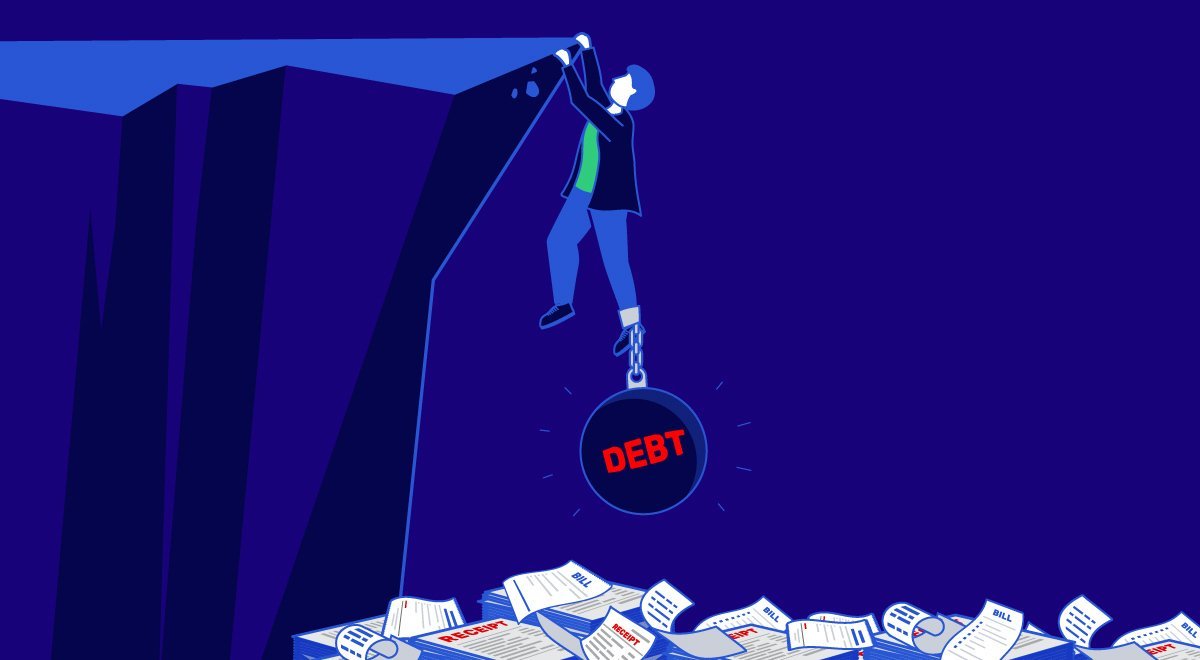Getting out of debt is a great achievement — but it doesn’t stop there! With 77% of American households carrying at least some type of debt, you aren’t alone in your struggle. Moreover, temptations are everywhere. You need to keep up the good financial habits that you used to get out of debt in the first place to keep yourself from becoming mired in debt again.
Don’t let debt hold you back. To stay out of debt, you need to identify the habits that got you there in the first place. Here’s how you can stop yourself from getting in debt again.
Get Rid of Credit Cards You Don’t Use
According to Experian, the average balance on credit cards by the end of 2020 was $5,897; outstanding revolving debt is on the rise. You may be avoiding using credit cards to prevent yourself from getting deeper in debt, but it may be tempting to start using up your available credit again.
To stop yourself from getting in debt again, get rid of credit cards you don’t use and cut them up. Making the card unusable is a good way to stop until you keep up the good spending habits.
If you’re also focused on building credit, don’t close those credit card accounts just yet. You can benefit from longer average credit history by keeping credit card accounts open, even if you don’t use them. However, if your card has a high annual fee or you’re afraid you might continue spending, canceling the account may be a better option.
Build Up an Emergency Fund
Because so many people rely upon credit cards for unexpected expenses, having an emergency fund can prevent you from building debt again. A good rule of thumb is to have three to six months’ worth of expenses in your emergency fund, but some experts recommend a smaller amount if you’re in the process of paying off debt.
An emergency fund allows you to live for a few months from the funds in that account if something happens. You can use these funds during periods of unemployment or when paying for home repairs, medical expenses, vehicle repairs, etc. Putting away even a small amount from each paycheck is a good financial habit and can help keep you from putting yourself in debt again.
Earn More, Spend Less
If you’re nervous about being in debt again, focus on good spending habits and increasing your income with a side hustle, if possible. There are plenty of ways to increase your income online, through gig apps, or by getting a part-time job. Earning more will help you save more money for your emergency fund or as a cash buffer. Make sure you don’t inflate your lifestyle as you earn more, which defeats the entire purpose!
Keep Budgeting
Budgeting is a great financial habit to adopt; and, if it helped you get out of debt in the first place, sticking with it will only do you good. Here are several ways you can benefit from keeping a household budget:
- Helps you control your spending
- Keeps you on track for your financial goals
- It can help you be financially content
- It stops you from being financially overwhelmed
- It helps avoid or get out of debt
- It helps you stay organized
- It helps you prepare for emergencies
When you know where your money is coming from and where it’s going, preventing yourself from getting in debt again will be a breeze.
Don’t Put Yourself in Debt Again
Getting out of debt is hard, and staying out of debt can be even harder. You need to keep up with the good financial habits that you learned if you want to stay debt-free once and for all. These habits will help you for years to come.





